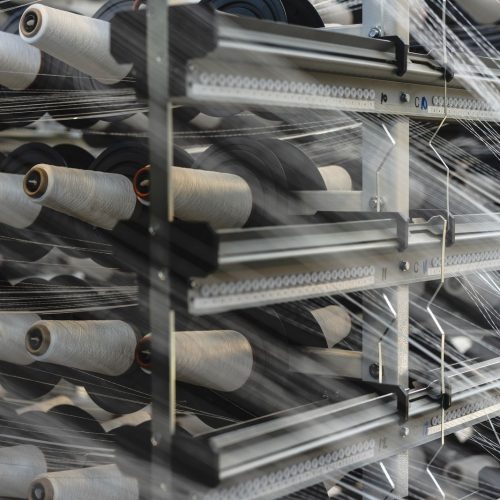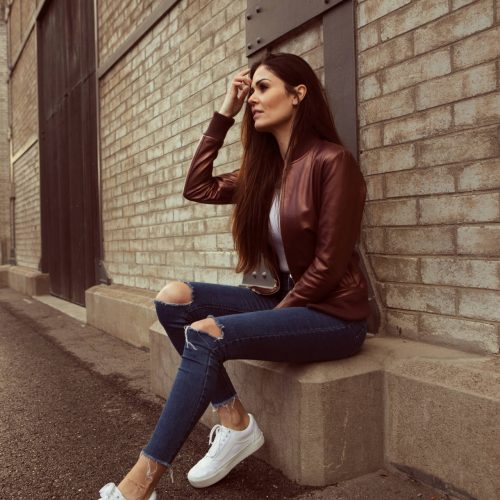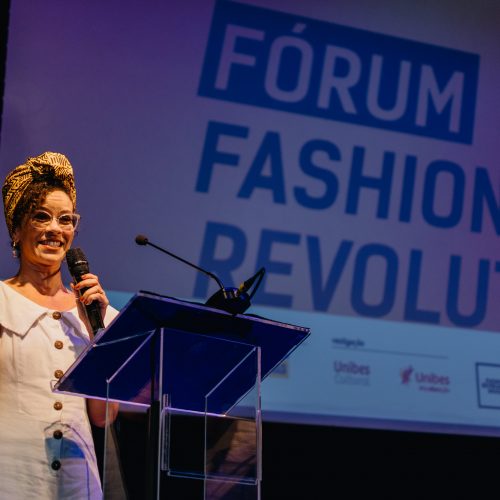Green Product Awards 2024 | Meet The Winners
The victors of the Green Product Award Fashion 24 have been revealed, marking a triumph of design and innovation. On January 27th, Neonyt in Düsseldorf served as the stage for honoring the winning products and capsule collections in clothing, accessories, and shoes, showcasing the intersection of style and sustainability. Meet the winners.
To receive the Luxiders Newsletter, sign up here.
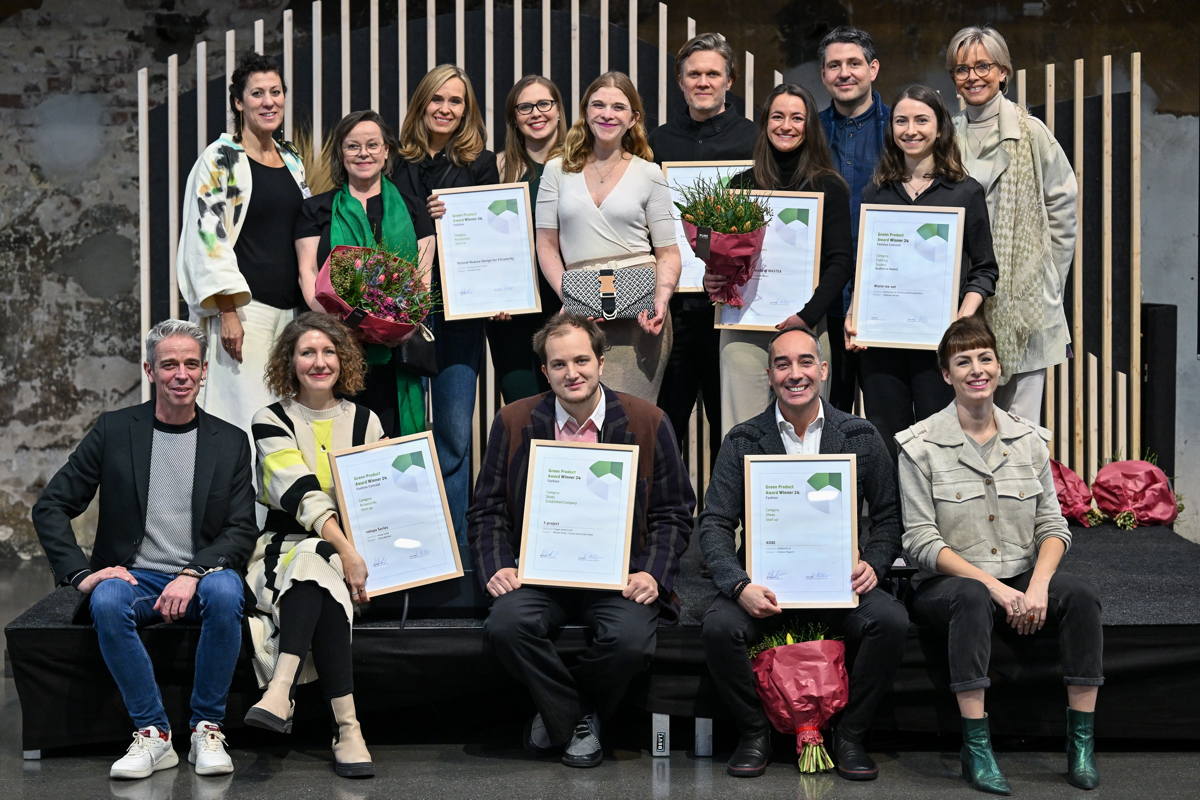
The Green Product Award Fashion, a collaboration between the Green Future Club and Igedo Exhibitions, organizers of Neonyt Düsseldorf, promises a glimpse into the future of fashion.
Selected by a diverse jury from Germany, the Netherlands, Finland, and Switzerland, which included Belvis Soler, CEO Luxiders Magazine; Rosan van Boven, Co-Founder Fabriek Fris & Anderlus; Sebastian Thies, CEO nat-2™ & thies; Petra Schmatz, Editor-in-Chief Sous & green lifestyle; and Ulrike Kähler, Managing Director of Igedo Exhibitions, the winners exemplified the global nature of sustainable fashion innovation.
MEET THE WINNERS
Accessories:
- NoWa: From e-trash to treasure
- valupa Series: Sustainable, recyclable fashion ingredients B2B
- Natural Nuance Design for Circularity: Circular design for a greener future
Clothing:
- Purified Waste: Clothes of recycled fibers
- Erverte Paris: Welcome to the green era
- Waste me not: A modular fashion collection
- The Modular Silk Blouse: Changing silhouettes and sizes through modularity
- The Multifunctional Trench: Modularity for a sustainable wardrobe
Shoes:
- T-project: Shoes made transparently for a true sustainability
- KOBI: From vanity to humanity
Trippen's T-project, creatively utilizing remnants from their own prototypes. "Revive", for instance, is using knitting and laces made of circular plastic yarn, sole made of 50% recycled old soles, 25% new natural rubber, 25% new synthetic rubber. The synthetic yarn is made of 70 % PET bottles and 30 % ocean plastic. After use the spanish manufacturer is able to recycle the knitted upper into new yarn that retains its original strength. The design of the upper shows the three-dimensional development in visible patterns, with integrated knit lacing. Incorporating our self-developed recycled rubber sole, “Revive” becomes a next step towards circular footwear.
NoWa stands for No Waste. They create jewelry from recycled gold and silver, directly extracted from waste phones. Their mission is to show that they don't have to extract gold from the ground at all. The gold is literally up for grabs! With their products we show the value of waste in a positive and tangible way.
Valupa Series solve one of the big problems in the fashion industry. While the market for sustainable textiles is growing, there is a lack of alternative fashion accessories. That is why valupa is developing recyclable product designs for buckles, rings, hooks, etc. For example, the buckle (patent pending) consists of an upper and a lower part between which the strap is attached. In this way, the end customer can repair the buckle at home without having to undo any seams and the product becomes recyclable. The materials used are 100% bio-based and the company is also developing its own compostable material from biogenic waste.
Natural Nuance bags are meticulously crafted from vegetable-tanned leather. The bags are designed with a forward-thinking zero-waste approach, allowing easy separation of materials for a second lifecycle. Large swaths of leather, meticulously sewn together, make disassembly a breeze, preserving the leather for reuse in new creations. Minimal or zero glue is applied, ensuring future repurposing is seamless. The commitment extends to accessories and packaging, featuring linen dustbags and chlorine-free materials. The leathers come from Germany and are certified with IVN and Biokreis to provide high standards for animal protection, and its tannery partners are certified according to ISO 9001. Attention is placed on low sulfide liming, GMO-free enzymes, heavy-metal-free colours, no chrome, only vegetable tannins from harvestable parts of plants and avoiding plastic finishing.
Pure Waste Textiles’s circular production process starts with waste collection, followed by mechanical recycling into fibers that preserves the original colour without additional dyeing or harmful chemicals. The company is committed to using 60% recycled cotton and 40% recycled polyester in yarn, sourced from cotton-cutting waste and recycled PET bottles. All garments, cords, hang tags, product labels, and size tags boast 100% recycled content, aligning with certifications like the GRS (Global Recycled Standard). Instead of individually packaging products in plastic bags, master poly bags accommodate multiple products. Each product features an outside woven label highlighting the environmental savings to empower consumers to make informed choices. Inside the garment, the product-specific hand- and footprints are detailed on the neck print and care label. Detailed emission and impact data are available on their website.
Kobi is a shoe brand creating high-end hybrid, genderless shoes that are fully sustainable. They only use sustainable materials like hemp, corn, apple, coconut fiber and natural rubber to be 100% recyclable. They consider the whole shoe life cycle including the correct disposal of the used ones. Furthermore, to help to absorb their C02 emissions they plant trees for each pair of shoes sold.
"The works of the winners show what is already possible today and provide inspiration for how the industry could implement sustainable fashion today." - Nils Bader, the Green Product Awards initiator, remarked.
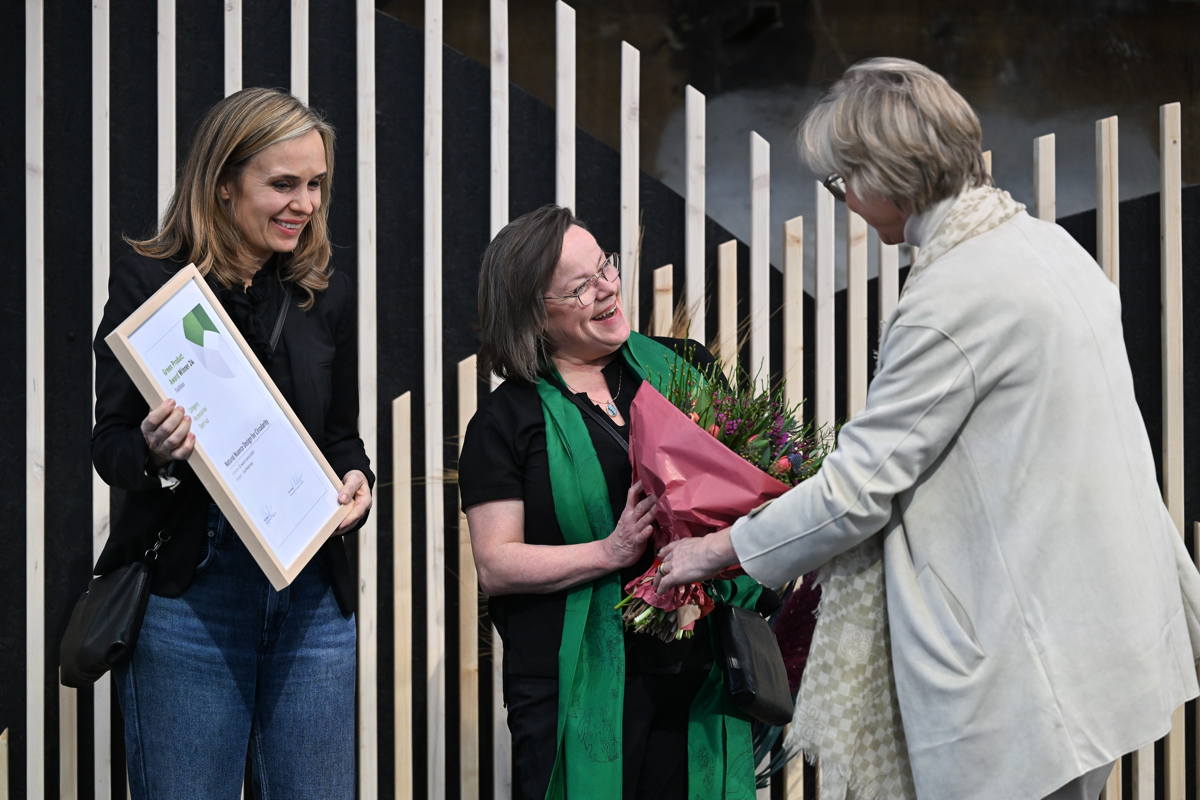
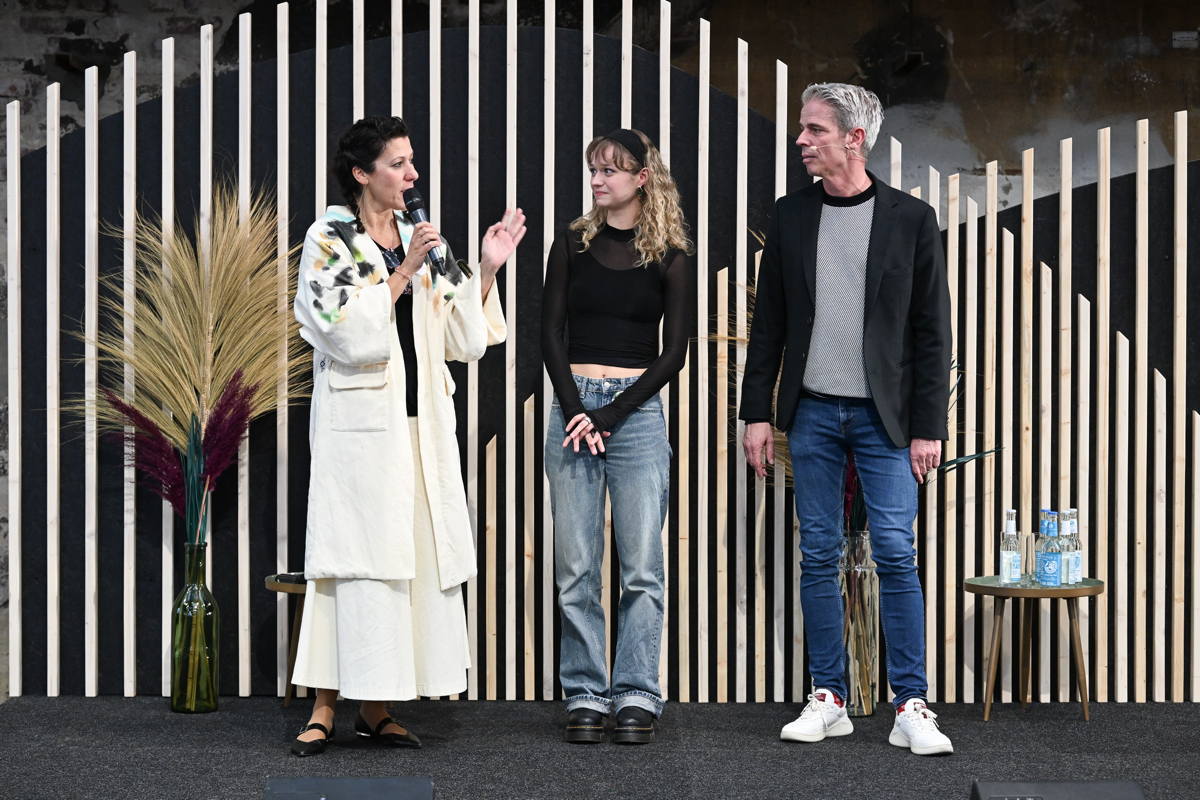
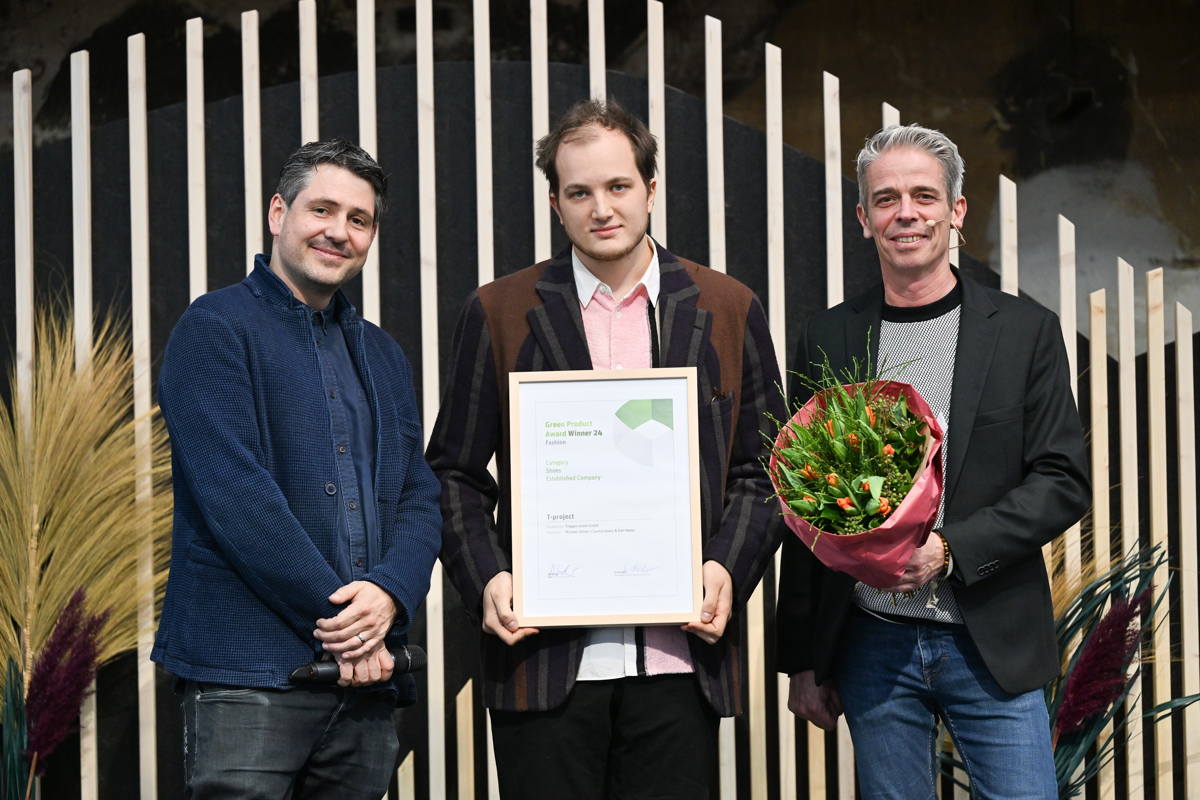
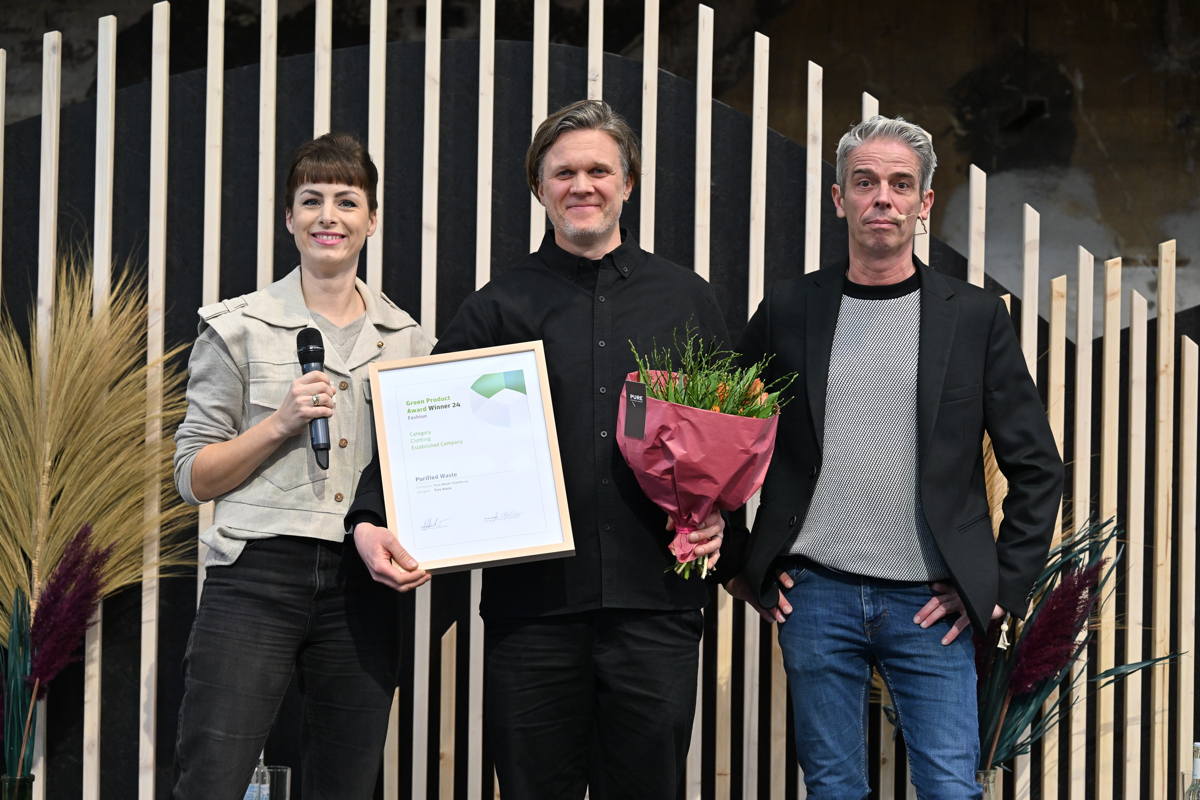

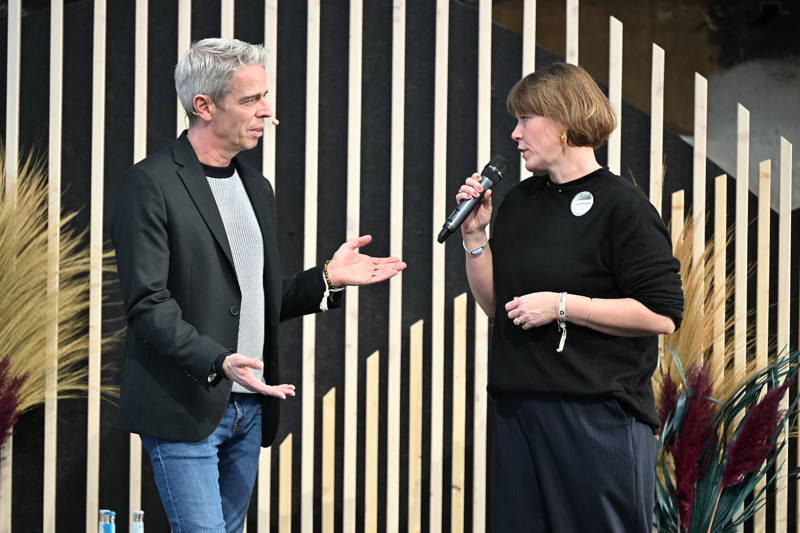
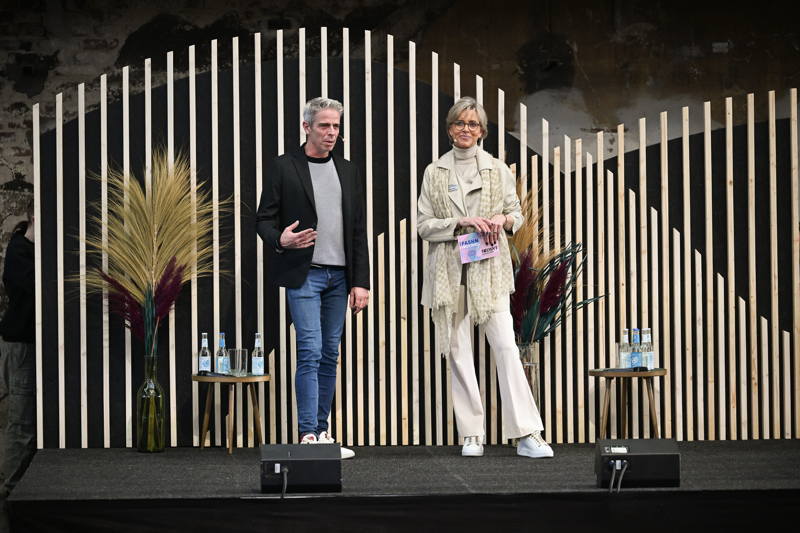
In a notable public vote, 10,000 votes were cast, with the concept Waste me Not emerging as the most popular, accompanied by a belt made from tea production leftovers. Embodying the essence of sustainability, the 'Waste Me Not' collection melds smart, ultra-simple design with a very feminine touch, crafting pieces from high-quality, overproduced yarns. The reversible, convertible, and modular nature of the collection not only facilitates diverse combinations but also accommodates every body shape. The exquisite softness of the knitting and the choice of timeless, elegant colors elevate this collection to a realm of enduring sophistication.
Another winner from the public vote was a vegan belt made from the material WASTEA, made from dried tea leaves, which are not suitable for consumption as they contain too much caffeine for tea and feeding to animals. Peta has also designated the material as vegan-approved.
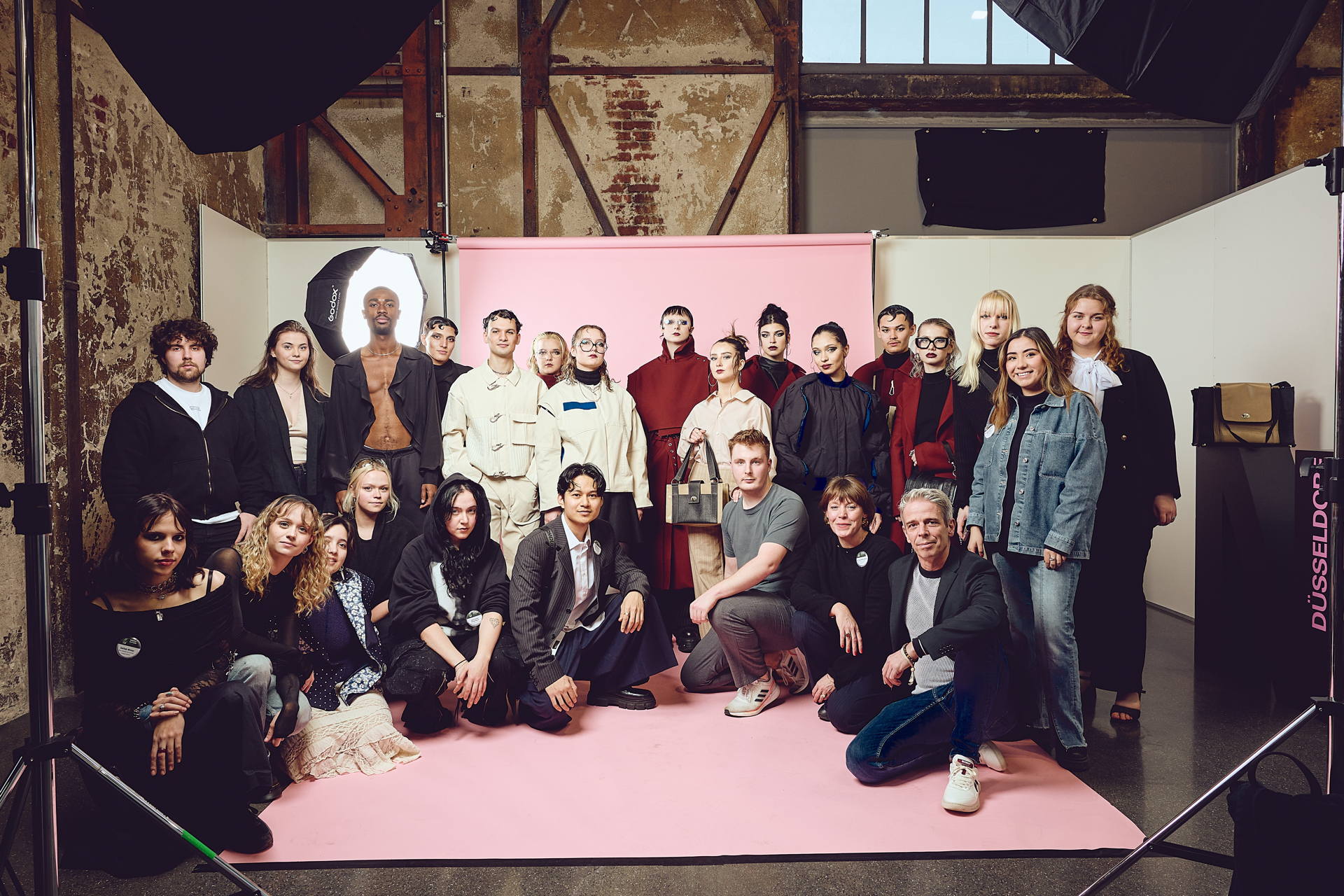
CHALLENGE YOURSELF! A SUSTAINABLE FASHION DESIGN APPROACH
Emboding the principles of circularity, affordability, and environmental, responsibility, and under the supervision of Prof. Dunja Marija Kopi, Dipl. Des., the students in the 3rd semester fashion design at Macromdia University of Applied Sciences, Campus Berlin, in cooperation with the Green Future Club, celebrated a catwalk with a capsule collection designed exclusively with deadstock materials. . This included materials crafted from coffee sacks sourced from Sylvia Calvo Barcelona and the vegan leather alternative HyphaLite™ TC from ISA Next-Gen Materials. The project's emphasis on extending the life cycle of garments showcased a commitment to adaptability for various occasions.
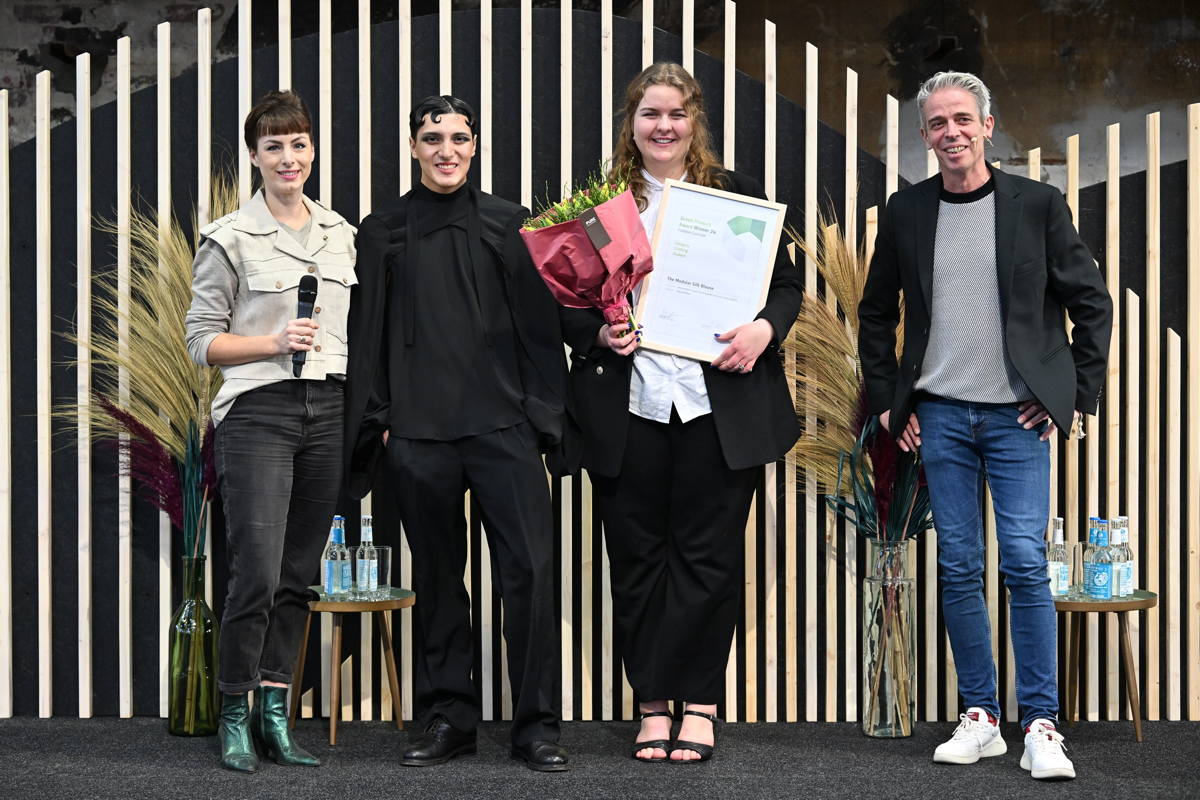
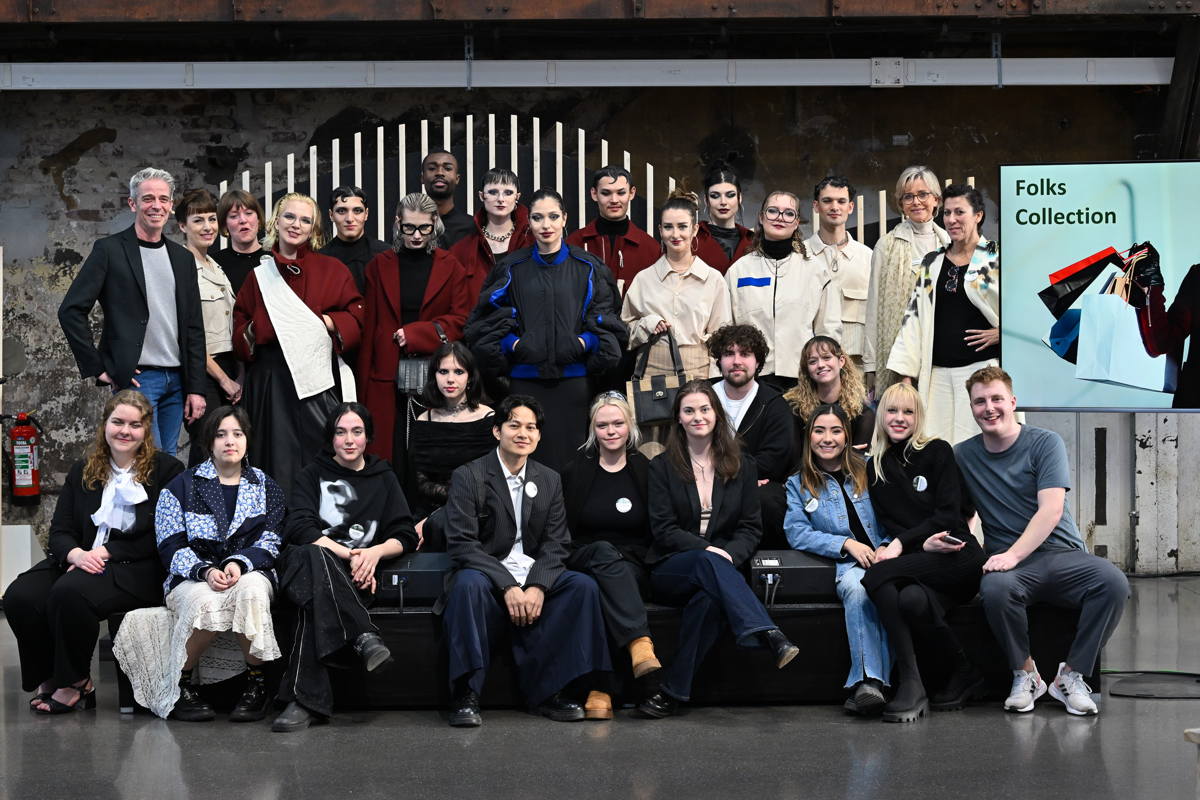
+ Featured Image: © Courtesy Green Product Award
+ Words:
Luxiders Magazine

